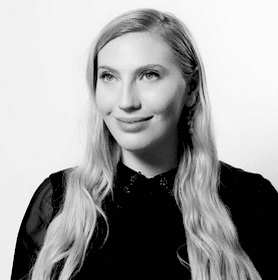 Mthunzi Ramphele
Mthunzi Ramphele Television writer Mthunzi Ramphele is living the American dream. With two animated TV pilots sold to major production companies, he’s achieved more than some of his most wealthy and well-connected counterparts in Hollywood have in a lifetime.
Ramphele is not up-and-coming; he has arrived.
As someone of Jewish descent, you’d think the television scribe (like anyone who’s seen “Seinfeld”) would be trying to use his Jewishness to help him make connections in Hollywood. However, as Ramphele goes in and out of studios, he’s trying to use Hollywood to connect to his Jewishness.
Ramphele was born in Johannesburg in 1993, one year before apartheid ended. In the midst of intense segregation, his mother, who was a nurse at a hospital serving whites, went into premature labor while at work. Although authorities wanted to transport her to a hospital that served blacks, it was too risky. So Ramphele entered this world with an act of defiance, not waiting for a permit or permission.
At a time when white and black people were forbidden to share the same side of the street, baby Ramphele did not break merely his mother’s water, but his country’s deepest boundaries. Now, as he brings to American audiences fantastical tales that subvert expectations of race, mental health and ostracization, Ramphele is unpacking the many costs of apartheid back home in Africa.
“I have been befriended by lots of Jewish people in South Africa, but they refuse to acknowledge me as part of the community because of how I look.”
— Mthunzi Ramphele
His birth country’s institutionalized racism stole many things from his family, he said, including Judaism. “My great-grandpappy escaped the Holocaust by moving to South Africa. There, he fell in love with this black woman.” The two married before the passage of the 1950 Immorality Act, a law that made interracial marriage illegal in the country. “The government said this is a law now, so your options are to leave your black spouse and all is forgiven, or to stay with your black spouse, but then you lose your status as a white man — which means you lose all your wealth, lose all your property. You basically lose everything. He was one of the few people to stay.”
Suddenly impoverished, Ramphele’s ancestors lost access to one facet of whiteness few would never expect: their Judaism. “In South Africa, we are separated by race lines, not by religious lines,” Ramphele said. Those lines encircled synagogues, which were whites-only spaces. Because his great-grandfather was no longer considered white, he was banned. “We were forced to separate from our Jewish identity.” Forcibly estranged from Judaism, the Ramphele family did what it could to hold on to its history. His father read Kaddish for his grandfather after his grandfather’s death. But because Jewish education was unavailable, so were many ways to meaningfully connect to it.
Now, as a screenwriter, Ramphele is living out Jewish values through questioning the somewhat arbitrary need of humans to divide ourselves into hierarchies. His hyper-commercial worlds of monsters and magical creatures wander on the foundation of his lived experiences of being a second-class citizen. Watching classism replace racism in South Africa and in Hollywood, Ramphele has come to a realization: “As soon as we can create a hierarchy, we will. And if we can oppress them, we will.”
As Ramphele, having lived out his dream in Hollywood, pursues his goal of recovering his Judaism, these arbitrary rules continue. “I have been befriended by lots of Jewish people in South Africa but they refuse to acknowledge me as part of the community because of how I look,” he said. He noted this is a product of South Africa’s racial divide, but his struggles to be considered a Jew, or even an ally to Judaism, continue in the United States.
Ramphele recalled a particularly uncomfortable experience with an African American Uber driver in Los Angeles. “The driver obviously didn’t know what my vibe is. First and foremost, he’s being very homophobic and sh—- and just assumes I’m going to be on his team. The next thing he says is that black people were the first Jewish people and I mean, if you’re talking about in Israel, they’re not black, but fine. But now he starts talking about the ‘new Jewish people.’ He tries to erase that history and starts saying all this anti-Semitic stuff. I’m like, why are we trying to separate suffering?”
Ramphele stands strongly against pitting minorities against one another. Regardless of who acknowledges it, he embodies a Jewish spirit in his love of provocative storytelling, both in person and on screen. Among the most interesting of his questions is: “Suffering is suffering. Why do I need to compare my suffering to yours? Why do I need to erase your history for my history to be relevant?”
Ariel Sobel is a screenwriter, filmmaker and activist, and won the 2019 Bluecat Screenplay Competition.























 More news and opinions than at a Shabbat dinner, right in your inbox.
More news and opinions than at a Shabbat dinner, right in your inbox.